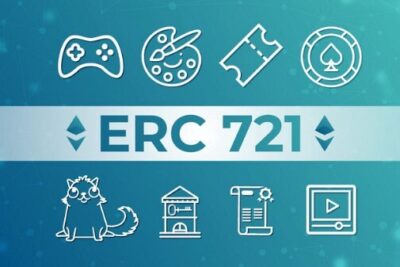

What Is Behind Smart Contract Technology – Smart Contract Example
29 March 2022
Now that the hype blockchain euphoria has never cold down, the technology’s potential uses have expanded well beyond cryptocurrencies. A blockchain-based system for smart contracts has the potential to cut transaction costs, eliminate the need for middlemen, and streamline the contracting process in general. Our professional and personal lives are governed by contracts, which are important to contemporary society.
Using smart contracts in the blockchain is a crucial part of making transactions more secure and ensuring that they operate in an ordered manner. It’s not only that, but it also aids in the accessibility of other components, such as programs operating on various platforms. But what is a smart contract exactly? Let bePAY introduce some of the most common use cases for smart contracts in various sectors and talk about their advantages.
What Are Smart Contracts?
Smart contracts are nothing more than computer programs recorded on a blockchain that execute when certain circumstances are satisfied. They are often used to automate the implementation of an agreement so that all parties may be confident of the conclusion instantly, without the participation of an intermediary or time lost. Additionally, they may automate a process by initiating the next activity when certain circumstances are satisfied.
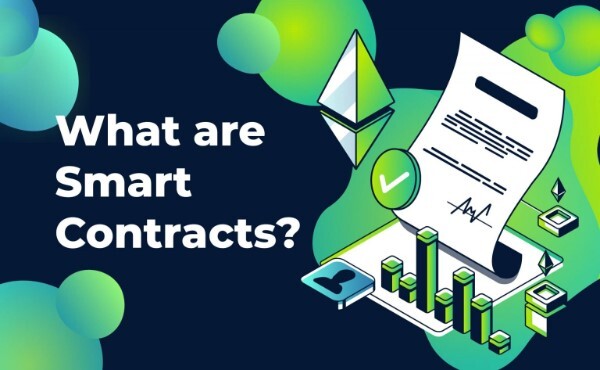
Smart contract blockchain
How Do Smart Contracts Work?
On the blockchain, smart contracts are implemented by encoding simple if/when… expressions. The actions are carried out by a computer network when certain conditions are met and confirmed. Disbursing funds, registering a car, sending out notifications, or issuing a ticket are all examples of these actions.
Following the completion of the transaction, the blockchain is updated. This implies that the transaction cannot be altered and that only persons given authorization may see the outcomes.
Within a smart contract, as many requirements as necessary may be included to ensure that the assignment is executed correctly. To set the conditions, parties must agree on the representation of transactions and their data on the blockchain, just on “if/when…then…” that govern such transactions, as well as any possible exceptions, and a way to resolve disputes.
The smart contract may then be coded by a developer, however, firms that utilize blockchain. Smart contract templates, web interfaces, and other online tools are becoming more commonplace for businesses.

How do smart contracts work?
A smart contract operates similarly to other blockchain transactions. The following are the required steps:
- From their blockchain wallet, a user begins a transaction.
- The transaction is sent to the distributed database, which verifies the transaction’s identification.
- The transaction is authorized, which may include the transfer of cash.
- The transaction contains the code that specifies the kind of operation to be performed.
- The transactions are posted to the blockchain as a block.
- Any change in the status of a contract is updated using the same procedure.
The Advantages Of Using Smart Contract Blockchain
When a requirement is met, the contract goes into effect immediately. Because smart contracts are digital and automated, they eliminate the need for paper to manage and no time is wasted rectifying mistakes that might arise when manually filling out documents.
- Transparency and trust: There is no need to be concerned about information being manipulated for personal advantage since there is no third party involved and participants share encrypted transaction records.
- Security: Due to the encryption of blockchain transaction data, they are incredibly difficult to hack. Additionally, since each item on a distributed ledger is connected to the entries before and following it, hackers would need to alter the whole chain in order to alter a single record.
- Savings: Smart contracts remove the need for middlemen and the associated time delays and expenses.
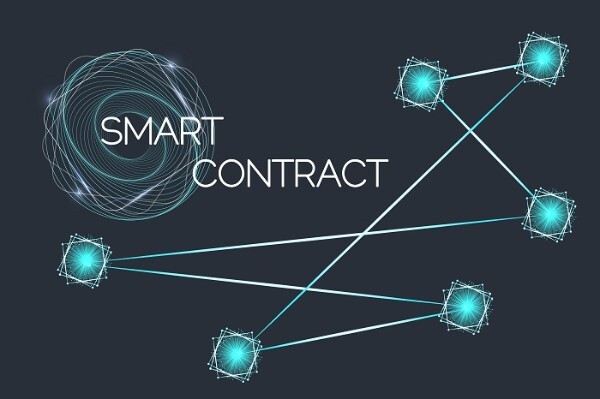
Smart contract benefits
>> Exploring ERC-20 tokens the most famous token on the Ethereum blockchain
Smart Contract Example Applications
Records: In the future, records will be easier to store and maintain with the help of smart contracts. As an example, there are millions of private patient records that need to be kept safe and updated.
Trade: Getting funds approved is a time – and resource-intensive procedure for most commercial endeavors. Smart contracts allow for significant reductions in this amount of time.
Chains of supply: For example, the Internet of Things may be utilized at every stage of a product’s supply chain, allowing it to be more easily traced. These mistakes, thefts, and losses may be avoided in this manner.
Human resource: By using smart contracts to keep track of a person’s academic credentials, diplomas, and work experience, it is possible to avoid CV fraud and make it easier for people and businesses to find each other when recruiting service providers.
Mortgages: It will be cheaper, quicker, and more secure to use smart contracts for mortgages. Buyers will be able to get access to the property early and instantly update their records as a result.

Which smart contract is the best?
Real estate: The registration of property ownership may be expedited via the use of smart contracts. In addition, they may be used to register many kinds of assets, not only real estate like houses or buildings.
Insurance: Every year, the sector spends millions on the processing and management of claims. Smart contracts will make it possible to calculate the payment amounts depending on the insurance type automatically.
Intellectual property: Due to lengthy legal cases, many firms are unable to go on with their projects. Smart contracts may maintain track of which section is owned by which corporation and which party is executing the contract on their behalf.
Health: Additionally, it may be used in the pharmaceutical industry to manage the cold chain, the health passport, or clinical research, as well as to keep track of pharmaceuticals.
Elections: As a political weapon, electoral fraud has been employed in certain nations, and in others, it has been a serious concern. By using smart contracts, the identity of a voter can be verified and their vote may be recorded with confidence.
Cryptocurrency Platform Smart Contract Examples
Below are the top cryptocurrency platform that applies smart contracts, there are dozens of smart contracts cryptocurrency out there to talk about largest well-known must talk Smart contract Ethereum is one of the biggest platforms until now.
Smart Contract Ethereum (ETH)
When talking about which smart contract is the best? People usually mention Ethereum – the most popular platform for smart contracts since it is also a frequently utilized cryptocurrency platform. The Ethereum community created the solidity programming language to enable the development of smart contract applications that operate on the Ethereum Virtual Machine (EVM) operating system.

Smart contract Ethereum
Ethereum introduced the notion of smart contracts as the first cryptocurrency. As a consequence, it is used by the vast majority of applications. Around 80% of DeFi apps operate on Ethereum’s network.
Regrettably, it has fallen prey to its own success. The network is overloaded, emits significant amounts of carbon dioxide, and developers complain about exorbitant gas (transaction) prices. It’s similar to a large, costly engine toiling uphill and spitting out fumes. Ethereum is also incompatible with other blockchains.
ETH 2.0 is a planned update that will address some of these concerns, however, it will not be completed until at least 2022.
Smart Contract Solana (SOL)
Solana is currently the fastest cryptocurrency on the market, capable of processing 50,000 transactions per second (TPS). To put it into context, Ethereum now operates at a rate of 15 to 45 TPS, however, this will significantly increase post-Eth2. On Solana, the average charge is a fraction of a penny.
It accelerates transaction processing by using something called “proof of history”. Without getting too technical, by including timestamps in its transaction records, it avoids wasting computer resources scanning for previously executed transactions.
Solana now hosts around 400 projects, including the fast-developing stablecoin USDC. USDC is a cryptocurrency that works on both Ethereum and Solana.
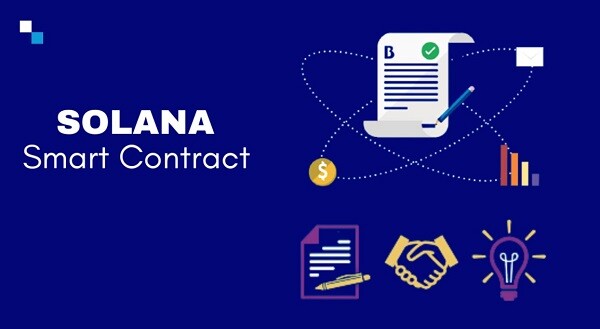
Smart contract Solana
Smart Contract Polkadots (DOT)
While Solana is notable for its speed, Polkadot is notable for its interoperability (how well it works with other platforms). This is the crypto that congregates at the coffee machine and converses with the other patrons.
Polkadot makes use of what are known as parachains. These operate in parallel with the primary blockchain, allowing it to execute transactions more quickly. Smart contracts are executed on parachains rather than the main blockchain.
Smart Contract Ergo (ERG)
This smart contract platform is free of gas expenses, which distinguishes it from the other cryptocurrencies on this list. Ergo is intended to handle more complicated contracts, which may appeal to the DeFi business. However, it is not yet listed on a number of big cryptocurrency exchanges and will need to work hard to establish a presence.
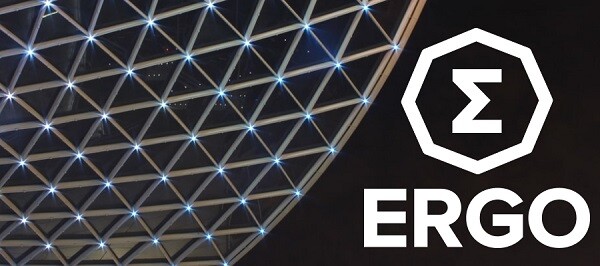
Smart contract Ergo
Smart Contract Alogorand (ALGO)
Alogorand, like the other emerging smart contract systems, offers minimal prices, scalability, and speed without sacrificing security. Silvio Micali, an MIT professor who emphasized making smart contract language accessible, is the project’s leader.
Developers may create smart contracts on Algorand using a variety of different computer languages. One of them, Clarity, is meant to make it simple for users, especially those who are not seasoned engineers, to comprehend what the contract will accomplish.
>> You may also like: What is Taproot Bitcoin? How does it affect Bitcoin?
FAQs About Smart Contracts
What Should I Care About Smart Contract Ethereum?
Bitcoin, the world’s first cryptocurrency, supported basic smart contracts, however, they are restricted compared to Ethereum. Each transaction is a smart contract since the network will only authorize it if the user gives a digital signature verifying they hold the bitcoin claimed. A Bitcoin private key holder may create such a digital signature.
Unlike Bitcoin, Ethereum’s code enables developers to utilize the blockchain for more than simply monetary transactions. In other words, the language is Turing-complete. Programmers can create any smart contract they can imagine.
While this has clear benefits, it also means that new smart contracts are less tested and hence more vulnerable. Smart contract flaws have already cost Ethereum millions of dollars.
Are Smart Contracts Legal?
According to many Ethereum proponents, smart contracts are meant to exist outside of the legal system due to their automated enforcement. If they operate as intended, users will avoid having to go to court to resolve disputes.

Are smart contracts legal?
Having said that, many people are concerned about how these contracts might be interpreted under the present legal system. The answer is nuanced. According to a 2018 research report co-authored by Stuart D. Levi and Alex B. Lipton, many smart contracts should be recognized under US law.
However, each country’s legal framework for cryptocurrencies and blockchains varies, with some countries being more supportive of the new technology than others.
Is There A Fee Associated With Smart Contracts?
However, as recent skyrocketing Ethereum fees demonstrate, assembling thousands of computers across the globe to confirm smart contracts is not always inexpensive. To keep the network operational, the user must pay a charge, often in ether (Ethereum’s native coin). Fees increase as the network becomes more crowded.
How Can I Utilize One?
Anyone using Ethereum’s native token ether, which can be purchased on cryptocurrency exchanges, may utilize smart contracts. Ethereum applications often provide instructions on how to utilize their particular application and its underlying smart contracts. A typical technique is to transmit ether via an Ethereum wallet program, such as Metamask.
Smart contracts may be used for a variety of purposes. Users may use a number of Ethereum applications to publish uncensored messages to microblogging apps or to lend money without the need for an intermediary.
Final Thoughts
A smart contract has several benefits. It has accelerated contract execution, it has the potential to significantly lower costs, and its applicability is not limited to its present usage. Currently, there are several ideas that organizations want to execute through the contract, as they become more aware of the benefits that smart contracts provide. The entire potential of a smart contract has not yet been realized, and our creativity and ability to apply the smart contract are endless.
There is an increasing number of fans of blockchain technology. The usage of smart contracts will expand, and more firms will use them in the future. The first critical stage in achieving a faultless smart contract is maturation.
We hope you enjoyed this introduction to smart contracts. To learn more about other cryptocurrency topics click here

What Is Web 3.0 And How Does It Affect The Future?
16 March 2022
What Is Staking Crypto? – Complete Tutorial For Newbies
30 March 2022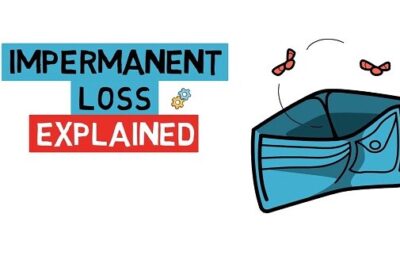
What Is Impermanent Loss And How Does It Work?
29 March 2022









